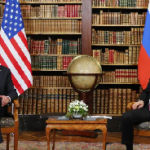The Unified Payments Interface (UPI) of India and PayNow of Singapore have now been linked to enable faster and cost-efficient transfer of cross-border remittances. Prime Minister Narendra Modi and his Singapore counterpart Lee Hsien Loong witnessed the launch of UPI-PayNow linkage .
The launch was done by Reserve Bank of India (RBI) Governor Shaktikanta Das, and Monetary Authority of Singapore (MAS) Managing Director Ravi Menon.
Speaking at the launch, PM Modi said, “The launch of the UPI-PayNow linkage (between India and Singapore) is a gift to the citizens of the two countries, which they were waiting for eagerly. I congratulate the people of both India and Singapore for this.
“In today’s era, technology connects us to each other in several ways. Fintech is a sector which connects people to each other. Normally, it is confined within the boundaries of one country. But today’s launch has started a new chapter of cross-border Fintech connectivity,” he added.
What UPI-PayNow integration means
UPI-PayNow will benefit workers who go to Singapore for a brief period of time and lose about 10% of the amount as bank fee for money transfers.
A link like UPI-PayNow could serve as a model for establishing an infrastructure for cross-border payments between India and Asean countries, the PMO said.
The integration will also help the Indian diaspora in Singapore, especially migrant workers and students through instant and low-cost transfer of money from Singapore to India and vice-versa. Migrant workers, tourists, small businesses, and enterprises would be benefitted through such Asean collaboration on payment connectivity.



